Daily Dosage of Omega 3
If you are considering taking a supplement such as Omega 3, it is very important to have all the necessary information regarding the supplement. Firstly, it must contain the right dose of EPA (eicosapentaenoic acid) and DHA (docosahexaenoic acid) to be able to provide you with the best results. Secondly, studies have shown that the optimal dosage is between 1000mg and 3000mg of both EPA and DHA.
Check with your physician or a healthcare professional before taking this, or any other supplement. They may advise on taking a different dose and if that dosage exceeds 3000mg a day, make sure you are being carefully monitored. Exceeding the daily limit of 3000mg can lead to adverse effects and potential drug interactions, especially with blood thinners.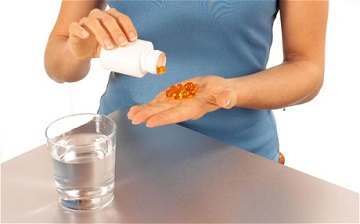
It is regarded as a safe supplement for consumption and when taken in the right dosages it has numerous health benefits which range from improved memory to promoting cardiac health.
Omega 3 and Dosages
Omega 3 can be purchased in gel capsules, ranging from 150mg to 300mg per capsule. Most capsules contain around 200mg of DHA and 400mg of EPA, although this amount varies from manufacturer to manufacturer. The quantity of gel capsules needed to achieve the daily recommendation is usually specified on the product’s label.
To get the best possible results and value, make sure you get a brand that contains the largest dose of active ingredients in the smallest amount of capsules per day. This not only saves you money but also helps the body absorb all the nutrients, as opposed to taking it in smaller individual doses.
The Balance Between Omega 6 and Omega 3
 Omega 3 is a fatty acid needed by the body to perform metabolic processes and maintain good health. However, Omega 3 must be balanced with Omega 6, which is more present in our diets than Omega 3. This imbalance of fatty acids in favor of Omega 6 leads to lower health benefits and in some cases cancels the benefits out completely. This is why you need to eat more foods that contain Omega 3 and less of those that have Omega 6.
Omega 3 is a fatty acid needed by the body to perform metabolic processes and maintain good health. However, Omega 3 must be balanced with Omega 6, which is more present in our diets than Omega 3. This imbalance of fatty acids in favor of Omega 6 leads to lower health benefits and in some cases cancels the benefits out completely. This is why you need to eat more foods that contain Omega 3 and less of those that have Omega 6.
Getting a good balance of EPA and DHA is the key to getting the most out of Omega 3. Just a small part of EPA actually converts into DHA and this process is a slow one to begin with. As EPA needs more time to be converted into DHA, your body absorbs far less EPA than it does DHA. This is why you need to look for supplements that contain more EPA.
Herbal supplies of Omega 3 also contain ALA (alpha-Linolenic acid), which the body converts into EPA and later DHA. The best sources of ALA are marine algae, but they also contain more DHA than EPA. It is also an excellent choice for vegetarians and those with restrictive dietary requirements. The balance of EPA and DHA may be a tricky business, but a little effort goes a long way when it comes to maintaining a healthy metabolism.

 Subscribe Now
Subscribe Now

 Some modern day diets try to mimic the ancient diet and provide us with a healthier lifestyle. A recent research has shown that a diet that is rich in Omega 3 fatty acids lowers the chance of developing heart diseases, memory problems, and emotional instability and even lowers blood pressure. Simply adding Omega 3 to your diet can lead to improved physical and mental state and a healthier life.
Some modern day diets try to mimic the ancient diet and provide us with a healthier lifestyle. A recent research has shown that a diet that is rich in Omega 3 fatty acids lowers the chance of developing heart diseases, memory problems, and emotional instability and even lowers blood pressure. Simply adding Omega 3 to your diet can lead to improved physical and mental state and a healthier life.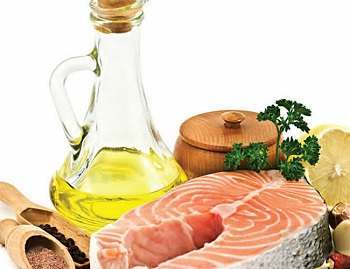 Omega 3 is considered to be a safe supplement and when taken in the right amount, it has proven and numerous health benefits ranging from memory improvement to supporting cardiac health. Check with a physician or a health care representative before taking supplements. They may recommend a different dose and if that dose exceeds 3000mg a day, it may have to be monitored. Surpassing the recommended daily limit of 3000mg can lead to adverse effects and possible interferences with other medications, particularly with blood thinners.
Omega 3 is considered to be a safe supplement and when taken in the right amount, it has proven and numerous health benefits ranging from memory improvement to supporting cardiac health. Check with a physician or a health care representative before taking supplements. They may recommend a different dose and if that dose exceeds 3000mg a day, it may have to be monitored. Surpassing the recommended daily limit of 3000mg can lead to adverse effects and possible interferences with other medications, particularly with blood thinners.
 Prehistoric man survived on fruits, vegetables, nuts seeds, fish, and no grains. They ate more Omega 3 type foods and little or no Omega 6 foods. From archaeology studies, it is believed they did not have the high occurrence of diseases we suffer from. Scientists also found they had an increase in brain cells and development after they migrated to water and began to eat fish. If you need a clue to improving your health today, migrate to foods and
Prehistoric man survived on fruits, vegetables, nuts seeds, fish, and no grains. They ate more Omega 3 type foods and little or no Omega 6 foods. From archaeology studies, it is believed they did not have the high occurrence of diseases we suffer from. Scientists also found they had an increase in brain cells and development after they migrated to water and began to eat fish. If you need a clue to improving your health today, migrate to foods and 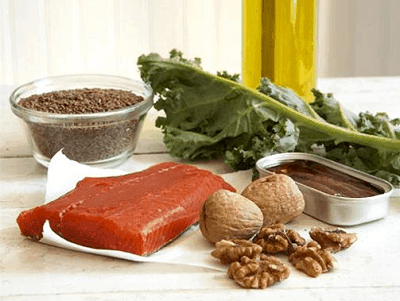 Life today has caused us to eat too many Omega 6 foods and not enough Omega 3. If we don’t get enough Omega 3 and too much Omega 6, the good
Life today has caused us to eat too many Omega 6 foods and not enough Omega 3. If we don’t get enough Omega 3 and too much Omega 6, the good  Omega 3 levels are highest in
Omega 3 levels are highest in 
 As soon as the migration towards water began, researchers found the brain began to increase in size. They started to have more advanced communication skills and were much more functional. In theory, this could only mean one thing – humans began to eat fish which are high in Omega 3 fatty acids. These are the actual
As soon as the migration towards water began, researchers found the brain began to increase in size. They started to have more advanced communication skills and were much more functional. In theory, this could only mean one thing – humans began to eat fish which are high in Omega 3 fatty acids. These are the actual 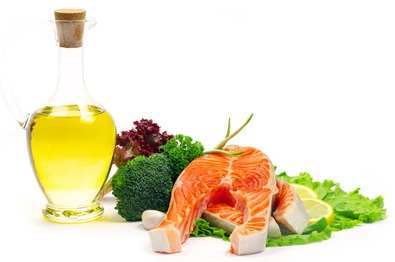 Even if we got rid of every bit of technology in our homes, exercised our brains and read lots of books, we still cannot completely keep our brain healthy without Omega 3 fatty acids. This nutrient goes hand in hand with using our brain and helps us form new brain cells.
Even if we got rid of every bit of technology in our homes, exercised our brains and read lots of books, we still cannot completely keep our brain healthy without Omega 3 fatty acids. This nutrient goes hand in hand with using our brain and helps us form new brain cells. Soy – Soy products have a small amount of Omega 3 and are a small source for vegetarians. You can even combine soy with other
Soy – Soy products have a small amount of Omega 3 and are a small source for vegetarians. You can even combine soy with other 
 It is a good idea to start taking Omega 3 prior to starting an exercise routine. When you start Omega 3 supplementation before exercise, it will help rev up your metabolism and prepare your body for an exercise routine. Omega 3 also helps to
It is a good idea to start taking Omega 3 prior to starting an exercise routine. When you start Omega 3 supplementation before exercise, it will help rev up your metabolism and prepare your body for an exercise routine. Omega 3 also helps to  You can get most of the necessary vitamins from a good multi-vitamin supplement containing vitamin A, D, E, K and B, plus minerals. You will want to take a separate supplement of Omega 3. The proper dosage for Omega 3 depends on whether or not you have any underlying health conditions. If you are healthy, the recommended dosage of Omega 3 is 1,000mg to 3,000mg daily.
You can get most of the necessary vitamins from a good multi-vitamin supplement containing vitamin A, D, E, K and B, plus minerals. You will want to take a separate supplement of Omega 3. The proper dosage for Omega 3 depends on whether or not you have any underlying health conditions. If you are healthy, the recommended dosage of Omega 3 is 1,000mg to 3,000mg daily.
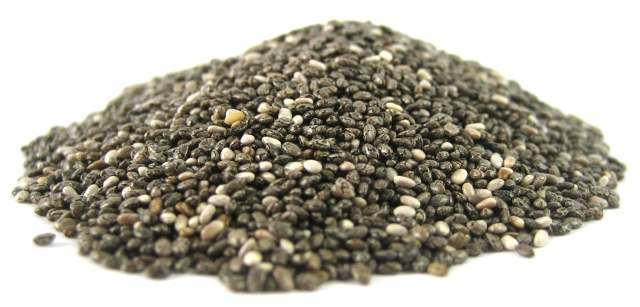 ALA (alpha-linolenic acid) – The highest amounts of this fatty acid come from plants. Flax, chia seeds, kiwi,
ALA (alpha-linolenic acid) – The highest amounts of this fatty acid come from plants. Flax, chia seeds, kiwi,  Auto-immune disorders – Chemicals known as “resolvins” reduce the inflammation of auto-immune disorders. Omega 3 fatty acids help the body increase production of resolvins and lower the inflammation present in these disorders.
Auto-immune disorders – Chemicals known as “resolvins” reduce the inflammation of auto-immune disorders. Omega 3 fatty acids help the body increase production of resolvins and lower the inflammation present in these disorders. You can find the highest amounts of Omega 3 in seafood like, cold water wild salmon and shellfish. Non-meat sources include: flax and flax oil, walnuts, canola oil and soy products. We often do not get enough Omega 3 because our diet in the United States contains very little seafood.
You can find the highest amounts of Omega 3 in seafood like, cold water wild salmon and shellfish. Non-meat sources include: flax and flax oil, walnuts, canola oil and soy products. We often do not get enough Omega 3 because our diet in the United States contains very little seafood.

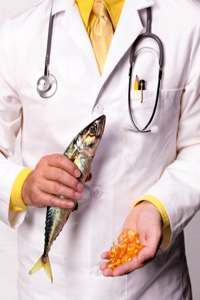 Cardiac Disease
Cardiac Disease
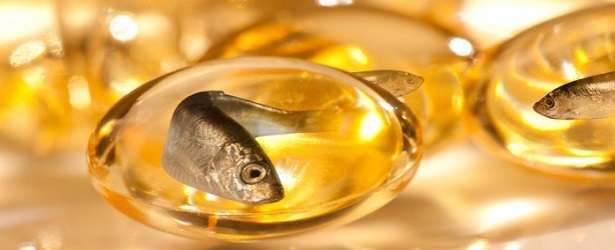
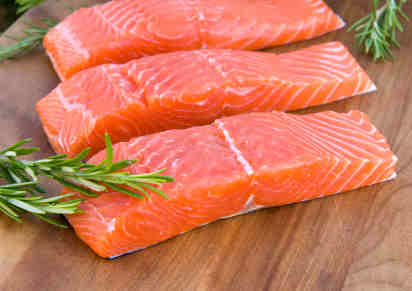 DHA – DHA develops brain cells and helps with memory, cognition, and mental health. They add it to baby formulas, and pregnant women should take in adequate DHA during pregnancy. The elderly may also get some benefits for dementia and memory loss. Find DHA in: wild salmon,
DHA – DHA develops brain cells and helps with memory, cognition, and mental health. They add it to baby formulas, and pregnant women should take in adequate DHA during pregnancy. The elderly may also get some benefits for dementia and memory loss. Find DHA in: wild salmon, 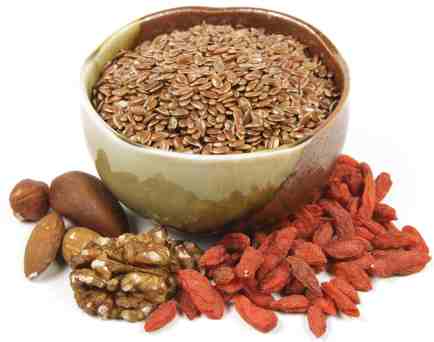 If we eat too much
If we eat too much 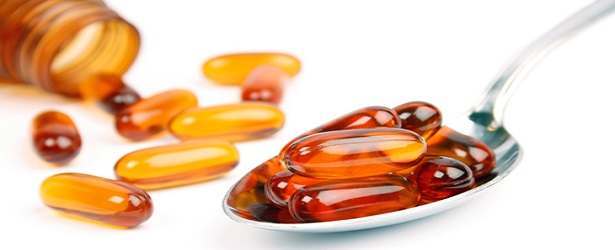
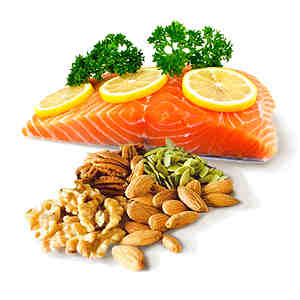 This little talked about nutrient is suddenly becoming very well-known and for good reason. Researchers are finding that Omega 3 fatty acids are very essential to healthy body function, and our society is seriously deficient. Studies show that many health problems are directly attributed to the lack of Omega 3.
This little talked about nutrient is suddenly becoming very well-known and for good reason. Researchers are finding that Omega 3 fatty acids are very essential to healthy body function, and our society is seriously deficient. Studies show that many health problems are directly attributed to the lack of Omega 3.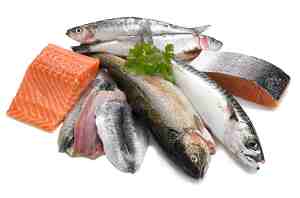 Brain and Memory – Recent research shows that Omega 3 fatty acids have a direct
Brain and Memory – Recent research shows that Omega 3 fatty acids have a direct 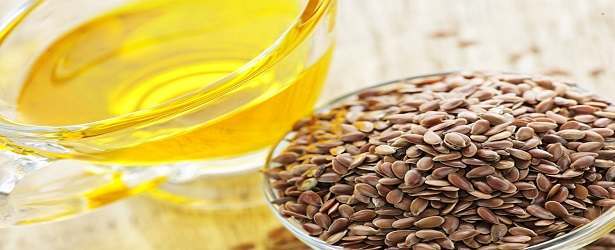
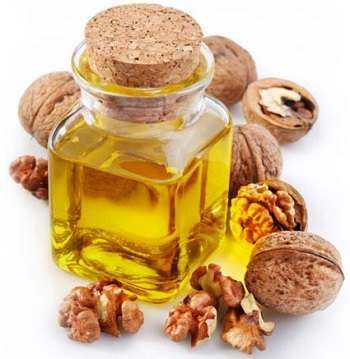
 Krill Oil –
Krill Oil –